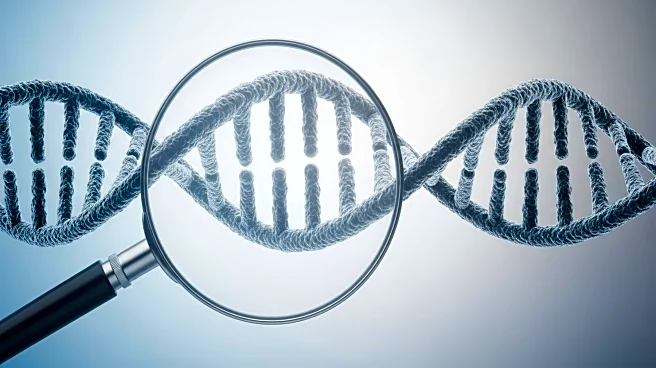What's Happening?
Researchers in China have identified genetic modifications in naked mole rats that could explain their unusually long lifespan of nearly 30 years. The study, published in Science, focuses on the enzyme cGAS (cyclic guanosine monophosphate–adenosine monophosphate synthase), which plays a crucial role in DNA repair. Unlike in humans and mice, where cGAS can suppress DNA repair, naked mole rats have four specific amino acid substitutions in the enzyme that prevent it from degrading quickly after DNA damage. This persistence allows the enzyme to effectively connect with other DNA repair proteins, enhancing the cell's ability to fix broken DNA. The research highlights the naked mole rat as an ideal model for studying ageing due to its genetic similarities to humans.
Why It's Important?
The findings from this study could have significant implications for understanding the mechanisms of ageing and longevity in humans. By identifying how naked mole rats maintain their DNA repair capabilities, scientists may develop new strategies to combat age-related diseases and improve human healthspan. The research could lead to advancements in genetic engineering and therapeutic interventions aimed at enhancing DNA repair processes in humans, potentially reducing the incidence of diseases linked to ageing, such as cancer. This study underscores the importance of comparative biology in uncovering biological processes that could be harnessed for human benefit.
What's Next?
Further research is likely to explore the application of these findings to human biology, potentially leading to the development of new treatments for age-related conditions. Scientists may investigate whether similar genetic modifications can be safely introduced into human cells to enhance DNA repair mechanisms. Additionally, the study opens avenues for exploring other unique biological traits of naked mole rats that contribute to their longevity, which could provide further insights into the ageing process.
Beyond the Headlines
The study raises ethical considerations regarding genetic modifications and their potential application in humans. While enhancing DNA repair could offer health benefits, it also poses questions about the long-term effects and ethical implications of altering human genetics. The research may spark discussions on the balance between scientific advancement and ethical responsibility in genetic engineering.








